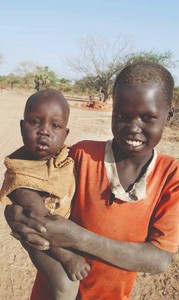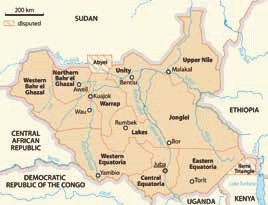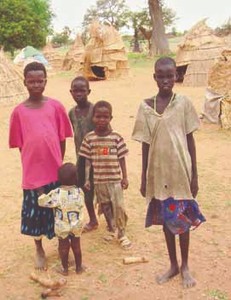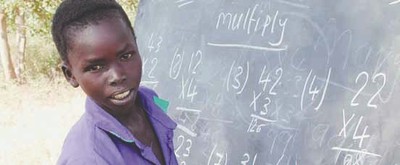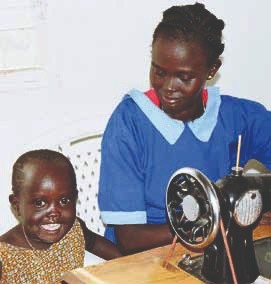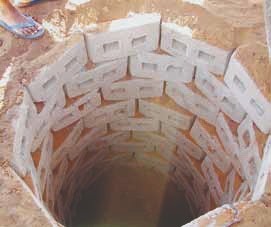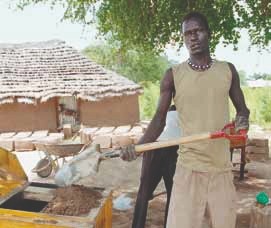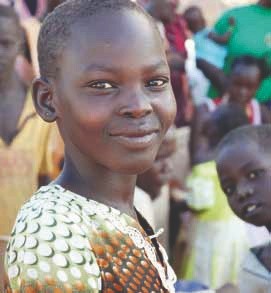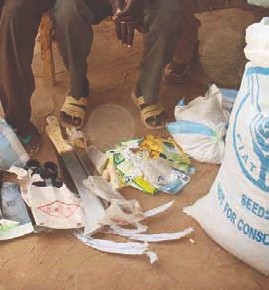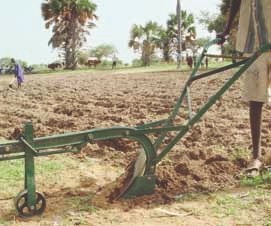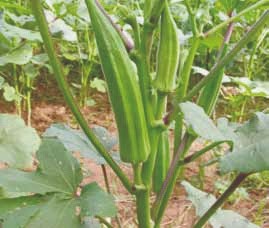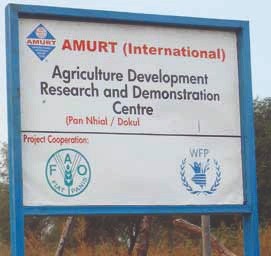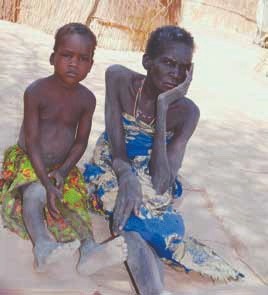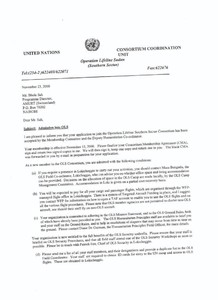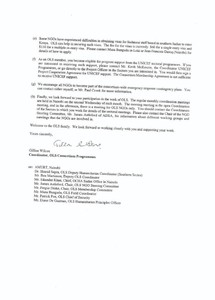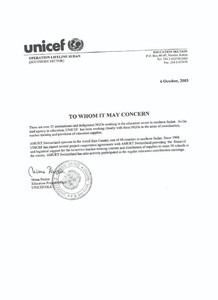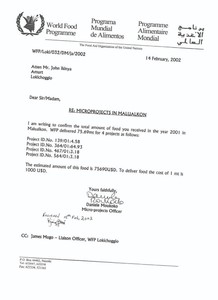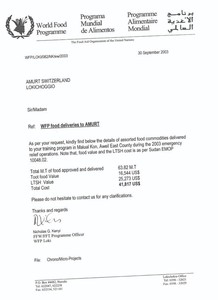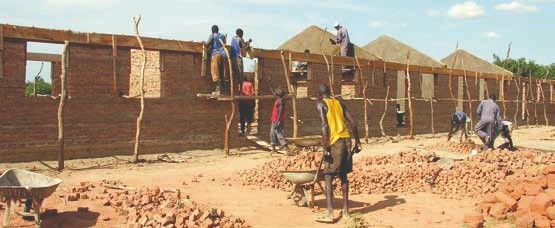
Education, food security, micro-credit, women empowerment, water and sanitation, capacity building
Project in numbers
| heading of table | |
|---|---|
| label | number |
South Sudan – the world’s newest nation
On the 9th of July 2011, South Sudan – officially known as the Republic of South Sudan – became the world’s newest nation. South Sudan’s secession followed a referendum where the overwhelming majority of the population of South Sudan voted in favour of independence. The referendum was part of the Comprehensive Peace Agreement (CPA), which is a set of peace agreements signed between the Sudan People’s Liberation Movement (SPLM) and the Government of Sudan in 2005. The CPA marked the end of the longest civil war in history, which raged on and off for 50 years.
Northern Bahr el Ghazal …
… (short NBEG) State is one of the 10 states within the Republic of South Sudan. With a population of 964,819 as per the 2008 population census statistics, the state is situated along the North-South border and nearby the contested area of Abyei. During the civil war, the state witnessed some of the heaviest fighting in the country. Like much of the rest of the country, the state saw little development in the past decades. The poverty rate in the state stands at 76%, which is higher than any other state in South Sudan (SSCCSE 2010). In addition, the proportion of children who die before their fifth birthday ranks the 3rd highest in the country. These problems are compounded by the large number of IDPs and returnees settling in NBEG.
The work of AMURT
Since 1998, AMURT International has been working in Northern Bahr el Ghazal State with both the local community and government. Over the years, AMURT has implemented a multitude of projects to address the challenges faced by the population, ranging from emergency interventions to activities supporting recovery and development. AMURT initiated the construction of important infrastructure, including that of primary schools, boreholes and latrines. Next to this, AMURT focusses on capacity building, for instance by training teachers, community elders and parents.
School construction
One of the pillars of AMURT’s work in South Sudan is the construction of schools. Currently, there are only 2 permanent classrooms for every 134 students. The majority of schools in South Sudan are ‘under the tree schools’ where pupils follow classes in the shadow of a tree, without having access to a permanent classroom, latrines or basic school supplies. To address this issue, AMURT has already constructed 18 primary schools, a multi purpose vocational training centre, a female teachers training centre as well as a kindergarten in the state of Northern Bahr el Ghazal.
Teachers Training
In a country where more than 90% of the population cannot read or write, there is a pressing need for education. However, as the illiteracy rate is one of the highest in the world, it is difficult to find qualified teachers. 60% of teachers in South Sudan have not finished primary school and this obviously has a large impact on the quality of the education provided. To address this issue, AMURT has established teacher trainer centres, where teachers receive classes on subjects suchas English, life skills and math. To date, AMURT has trained more than 800 teachers.
Vocational Training
Decades of war have left many South Sudanese without the knowledge and skills needed to make a living. To build the capacity of the population, AMURT is providing vocational training. The technical training organized by AMURT includes courses on Tailoring, Carpentry, Welding and Masonry. These trainings provide economic opportunities to the participants and at the same time helps building a skilled labour force.
School feeding programme
It is difficult to follow classes on an empty stomach, but a large part of the parents in South Sudan do not have enough food to feed their children every day. With the support of WFP, AMURT provides food to several primary schools. Meals are prepared at school and children receive breakfast or lunch. Providing pupils with a meal during school time motivates children to attend school and improves educational achievement.
Construction of pit latrines
In South Sudan, almost half of all children in primary school do not have access to a latrine. A lack of access to proper toilets increases the risk of serious diseases, including diarrhea, typhoid fever and cholera. AMURT constructs latrines at primary schools to encourage children to use a latrine. In 2011 alone, AMURT has constructed 22 latrine blocks. The construction of latrines is accompanied by hygiene promotion training for the pupils, focusing on regular latrine usage and hand washing with soap.
Increasing girls enrolment and reducing drop-out
South Sudan has proportionally fewer girls going to school than any other country and only 1% of the girls finish primary school. Building schools alone is not sufficient to increase the number of girls in school. For girls, the biggest barriers to attend and finish primary school include early marriage, community attitudes towards girls’ education and traditional practices. With the support of UNICEF, AMURT addresses these issues, for instance by giving parents training on the importance of education and by establishing girls clubs that support girls throughout their education.
Reintegration of demobilized soldiers
Reintegration of ex-combatants is one the major challenges South Sudan is currently facing. AMURT supports the on-going reintegration activities by providing former combatants with an alternative livelihood, through training in crop and vegetables production. Equipping former combatants with possibilities to start alternative livelihoods is essential to ensuring their successful transition back into civilian life.
Agriculture training and provision of seeds and tools
South Sudan has a very fertile soil, with more than 90% of its land suitable for farming. However, currently only 4% of the land is used for agriculture. A lack of seeds, equipment and knowledge on how to farm land hampers the expansion of agriculture. In cooperation with FAO, AMURT is distributing crop and vegetable seeds and different tools amongst households. This is accompanied by training on best crop production practices.
Farmer Field Schools
The population of South Sudan often faces difficulties in meeting their food needs. There is great potential in agriculture, but currently only a small percentage of the available land is cultivated. AMURT is providing farmers with the support they need to farm their land more effectively. One of the activities AMURT undertakes in this regard is the establishment of Farmer Field Schools. In these schools, farmers are able to access farmer training, can share best practices and receive credit support.
Ox-plough training
Currently, a large amount of the ploughing in South Sudan is done by hand. Land can be cultivated much faster if oxen are used instead of manpower. AMURT gives training to farmers on how to use and maintain an ox-plough. The introduction of ox-ploughing enables communities to prepare more land for cultivation. Thanks to ox-plough training, farm yields have increased by almost 300% in the last years.
School gardens
School feeding programmes can increase school attendance and learning performance. To reduce dependency of schools on food aid, AMURT is supporting the establishment of school gardens. Pupils are taught to grow their own food and schools receive the support, seeds and tools necessary to start and maintain a school garden. Together with the communities, AMURT has initiated more than 100 school gardens up till now. AMURT will continue to initiate school gardens in 2012.
Assistance to returnees
A large number of South Sudanese fled the country during the civil war. The signing of the 2005 Peace Agreement and the recent independence of the country has triggered the return of many of these South Sudanese. However, the new country does not have the capacity to deal with all these returnees and many services are overwhelmed by the high number of new citizens. In response to the influx of returnees, AMURT has implemented several projects, including the provision of seeds, tools and shelter. Recently, AMURT has supported existing primary schools in increasing their absorption capacity by building temporary classrooms and by distributing school materials.


